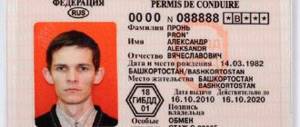What is considered evidence of guilt?
Any competent driver knows that in Russia there is a presumption of innocence: no one is guilty until his guilt is proven. The responsibility to prove the driver’s guilt in violating traffic rules lies with the traffic police inspectors - the guardians of the law can use any methods and methods of evidence when enforcing them. Article 26.1 of the Code of Administrative Offenses gives them the right to do this - any factual data that establishes the event of a violation and that is recorded in the protocol can be used as evidence in an administrative case.
In fact, it could be:
- evidence from the inspector himself,
- photographic evidence and video recording,
- and even witness statements.
Naturally, the video recorded by the traffic police will also be considered evidence if it is included in the case file. In the same way, the driver himself can show the video to a traffic police officer if it was recorded by him, for example, on a video recorder. Show your video - prove your innocence!
The task of the authorities is to create a set of evidence that will substantiate the driver’s guilt. And if such evidence is insufficient or contradicts the actual circumstances of the situation, the driver cannot be found guilty. But finding out this, considering the evidence and answering whether the driver is guilty is the task of senior traffic police officials or the court who are considering the case.
How should a traffic police inspector prove a violation?
As mentioned earlier, the main evidence of traffic violation is the protocol; it contains all the important information. If an accident occurs, a diagram and other documents are attached to the case file. In Art. 25.1 of the Code of Administrative Offenses of the Russian Federation states that the driver has the right to get acquainted with evidence from the moment the proceedings are initiated. According to Art. 28.1 of the Code of Administrative Offenses of the Russian Federation, this moment is considered to be the time of drawing up the protocol.
Let us pay attention to Art. 1.5 Code of Administrative Offenses of the Russian Federation. It says that a person is considered innocent until his guilt is proven in court or another government agency. But there is a note: the presumption of innocence does not apply to cases of traffic violations.
Conclusion: inspectors in most cases are not required to justify anything.
Even if the driver did not violate traffic rules, but a protocol has been drawn up against him, he will have to independently prove his innocence. If a video was recorded and the recording is added to the case file, this is recorded in the protocol: it indicates that the violation was recorded on video, and the video itself can be viewed by the violator. The number and name of the recording device are also displayed. Important! The inspector is obliged to show the driver a video recording of the violation only if information about its presence appears in the protocol.
But no law obliges the fact of video recording to be indicated in this document. Sometimes traffic police officers still let people watch the video. It should be remembered that this is only their personal initiative, and not all company cars are equipped with DVRs. The activities of the police are regulated by Order of the Ministry of Internal Affairs of Russia dated August 23, 2017 No. 664, and there is not a word about mandatory video recording.
Why is the inspector not required to show the video?
In 2021, video recording cameras are widely used by the traffic police when monitoring violations on the road. Therefore, drivers are already accustomed to the fact that if an inspector draws up a report, it means he recorded us on video and will use it as evidence. But with all this, it should be borne in mind that:
- firstly, none of the laws obliges traffic police inspectors to record the moment of the violation on video - this is exclusively their right when exercising their official powers. In Russia, in general, a huge number of fines are issued without video recording, for example, fines for not fastening a seat belt or violations of parking rules;
- secondly, there is not a single rule obliging to attach the recorded video to the case materials. It is quite possible that there is a recording, but the traffic police officer does not want to let the driver see it at his request, since it does not give a clear picture and does not allow one to unambiguously establish the guilt of the person stopped.
Indeed, the driver, as a party to the proceedings, has procedural rights: Article 25.1 of the Code of Administrative Offenses allows the person against whom the proceedings are being conducted to study all the materials of the case, give his testimony, challenge and exercise other procedural rights. In particular, citizens have the right to demand from inspectors an explanation of the essence of the violated traffic rules.
But the responsibilities of the inspector when drawing up the protocol are clearly stipulated by the Administrative Regulations, approved by Order of the Ministry of Internal Affairs No. 664. And in it, as in any other regulatory act, there is no such duty of the inspector as providing evidence of an administrative violation directly on the road before issuing a decision.
Therefore, the driver cannot demand that the traffic police officer show a video of the violation. Even if such a demand is made, the police officer can quite legally refuse the driver. And this cannot serve as a basis for appealing the actions of the police and challenging the decision with a fine.
Should the inspector show recorded video?
There are no laws that would oblige traffic police officers to show drivers videos of their violations. It’s another matter if this recording becomes the material of a case about an administrative violation. However, even in this case, the inspector should not show the video at the driver’s first request: he must explain the essence of the violation, but not prove the fact that it was committed. You can exercise the right to familiarize yourself with the case materials in court or at the traffic police department. You can appeal the punishment only if the protocol contains a video recording as evidence, which they could not demonstrate.
Important note!
- This article provides basic information, but each case is different.
- In 92% of all situations there are important nuances that can affect the outcome of the entire case.
- An experienced lawyer will study all the materials of the case and indicate in which direction to move.
Therefore, our website employs on-duty legal consultants who delve into each case and are aimed at solving it.
Ask a Question
or consult toll-free (Moscow), (St. Petersburg), 8 (all of Russia).
Video recording instead of witnesses when compiling administrative material
Since October 2014, when applying measures to ensure proceedings in a case of an administrative offense, officials have been given the opportunity to use video recordings instead of witnesses.
Recording the conduct of procedural actions using video recordings, and not in the presence of witnesses, makes it possible to more objectively establish whether officials comply with the entire procedure for bringing a person to administrative responsibility. The presence of a video recording in the case file makes it possible to prove in court the innocence of the person involved.
For example, the driver introduced himself by the name of another person, refused to undergo a medical examination and “set up” an acquaintance for deprivation of the right to drive a vehicle. During the consideration of the case, the judge of the second instance, when appealing the decision, using the video recording available in the case materials, established that a person who was not involved in the events of the offense was brought to administrative responsibility and canceled the decision imposing an administrative penalty.
As the Supreme Court of the Russian Federation indicated in its decision dated January 20, 2017 No. 36-AD16-8, the use of video recording when compiling administrative material is one of the guarantees of ensuring the rights of a person brought to administrative responsibility, in order to eliminate any doubts regarding the completeness and correctness of recording in the corresponding protocol or act of content and results of the ongoing procedural action.
The grounds that served to cancel all judicial acts in this case of an administrative offense were the circumstances that the video recording attached to the case materials actually reflects information about the driver signing the protocols and report drawn up in relation to him, does not contain a procedure for examining the driver for alcohol intoxication, sampling of exhaled air and its results were not recorded on video.
The use of video recordings by officials is regulated by Part 2 of Article 27.12 of the Code of Administrative Offenses of the Russian Federation, which establishes that removal from driving a vehicle of the relevant type, examination for alcohol intoxication, and referral for a medical examination for intoxication are carried out by officials who are granted the right of state supervision and safety control movement and operation of a vehicle of the corresponding type, in the presence of two witnesses or using video recording.
When defending a person brought to administrative responsibility, video recording makes it possible to identify all possible violations committed by the official when applying security measures in the case, which ultimately allows the proceedings to be terminated.
We should not forget about the other side of the coin: a person guilty of committing an administrative offense will be deprived of the opportunity to evade responsibility if the police officers carry out all procedural actions recorded using video recording equipment correctly. Whether the video recording was made using the officials’ regular technical equipment or using their mobile phones does not matter, since it is the content of the video recording itself that has evidentiary value, and not the means with which the video recording was made.
Can I appeal if there is no video?
The inspector’s refusal to show the video does not mean that it, like other visual documents documenting guilt, does not exist.
But if the protocol is drawn up on the basis of the statements of the traffic inspector, without other evidence and explanations of witnesses/victims/witnesses, it cannot serve as a basis for prosecution. The Supreme Court came to this conclusion back in March 2021.
The Supreme Court indicated that the absence of indisputable evidence when initiating an administrative case should be interpreted in favor of the driver. But the protocol itself is not proof of the driver’s guilt. That is, the statements of the police themselves are not considered indisputably true and must be substantiated by other evidence contained in the case file.
As a result, we conclude that if a traffic police officer refused to show a video of the violation, request the recording from his management or in court on the basis of 25.1 of the Administrative Code. And if it is missing, feel free to file a complaint, referring to the existing practice of the RF Armed Forces.
Official website of the Supreme Court of the Russian Federation
A driver from the Khabarovsk Territory filed a complaint with a higher authority after a traffic police inspector forbade him from filming on his phone the moment he was drawing up a report on an administrative offense for allegedly not fastening his seat belt.
First, the motorist won the case: the Vyazemsky District Court of Khabarovsk satisfied the claim and found the actions of the traffic inspector to be inconsistent with Part 4 of Article 29 of the Constitution, Articles 8, 9 of the Law “On Police”, as well as Article 25.1 of the Code of Administrative Offenses of the Russian Federation, since his act violated the right to receive information legally way, the right to access to openness and publicity of police activities, the right to present evidence in a case of an administrative offense.
The judge, having looked at the video recordings of the plaintiff and from the video recorder of the patrol car, found that the inspector motivated the ban on video recording solely by the fact that he supposedly cannot be filmed while on duty and all his actions are recorded by a technical device installed in the official car, however, these statements contradict the above laws .
Meanwhile, the Khabarovsk Regional Court first terminated the proceedings in the case, and after returning the material for review from the cassation instance, it made a new decision - to refuse to satisfy the demands. And this time the Ninth Court of Cassation of General Jurisdiction agreed with this position.
The appellate instance considered that since the driver was filming while the traffic police inspector was drawing up procedural documents within the framework of the powers granted (checking the driver’s documents, drawing up a protocol on an administrative offense), that is, when the case of an administrative offense is considered initiated, then the police officer’s demand to terminate it is legal and in accordance with Article 24.3 of the Code of Administrative Offenses of the Russian Federation.
Position of the Armed Forces
Based on the principles of police activity enshrined by the federal legislator, its employees must perform professional duties on the basis of observance and respect for the rights and freedoms of man and citizen, and also strive to ensure public confidence in themselves, and perform actions that are reasonable and understandable to citizens (Part 1 of Article 5, Parts 1 and 2 of Article 6, Parts 1 and 2 of Article 9 of Federal Law No. 3-FZ), notes the Supreme Court of the Russian Federation.
“The activities of the police are open to society... Indeed, Article 24.3 of the Code of Administrative Offenses of the Russian Federation, which establishes the general rule on the openness of consideration of a case of an administrative offense, provides for the possibility of broadcasting an open hearing of a case on radio, television, and the Internet telecommunications network with the permission of the judge, body, or official considering case of an administrative offense (part 3).
Meanwhile, such a rule, as well as a ban, has not been established for the stage of drawing up a protocol on an administrative offense,” notes the highest authority.
Based on the cumulative legal analysis of the requirements of Section IV of the Code of Administrative Offenses of the Russian Federation “Proceedings in cases of an administrative offense”, consisting of separate chapters, including Chapter 28 “Initiation of a case of an administrative offense” and Chapter 29 “Consideration of a case of an administrative offense”, drawing up a protocol on an administrative offense is one of the actions of an authorized person, the commission of which indicates the initiation of a case (clause 3 of part 4 of Article 28.1 of the Code of Administrative Offenses of the Russian Federation), indicates the Supreme Court.
The procedure for considering a case of an administrative offense is regulated by Article 29.7 of the Code of Administrative Offences, he reminds.
“The courts have established and follows from the case materials that the fact that the traffic police inspector prohibited video recording took place during the preparation of the protocol, that is, at the stage of initiating a case of an administrative offense, and therefore it is impossible for the courts to refer to the provisions of Article 24.3 of the Code of Administrative Offenses of the Russian Federation when considering this case be considered correct, since the effect of this norm extends to an independent stage of proceedings in a case of an administrative offense - the consideration of a case of an administrative offense,” explains the Supreme Court.
The traffic inspector’s argument that there is a ban on video recording of a police officer while on duty is also not based on the norms of federal legislation, the highest authority notes.
“On the contrary, police activities are open to society,” the Supreme Court emphasizes.
He recalls that the court of first instance found that the driver did not get into the official car and his actions to video record what was happening on his mobile phone did not create obstacles to the performance of professional duties by the traffic police inspector; he also did not record any special objects that were not subject to video recording. The traffic police officer did not deny it either.
“In this situation, the conclusions of the courts of appeal and cassation on the legality of the contested actions of the traffic police inspector cannot be considered legal and justified,” the Supreme Court believes.
In connection with this, he canceled the rulings of the Khabarovsk Regional Court and the Ninth Cassation Court of General Jurisdiction and upheld the decision of the Vyazemsky District Court of the Khabarovsk Territory.
Alice Fox











